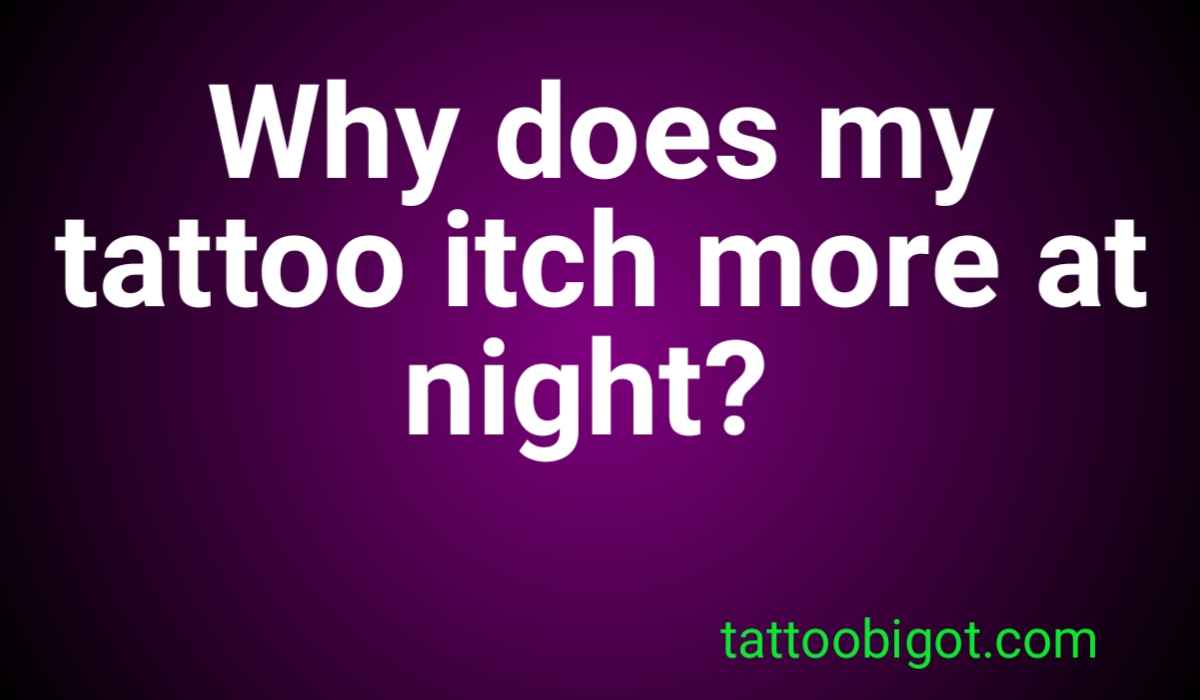Why does my tattoo itch more at night?
You get a lot of itchiness in your right arm and shoulder where your tattoo is located.
It’s not too bad during the day, but at night it becomes unbearable. You’ve tried different treatments, but nothing seems to help.
You’re starting to think that there must be something wrong with the placement of your tattoo because it always seems to bother you more at night.
Actually, itchiness can be more prevalent at night because of the reduced blood flow to the skin.
This could be due to a number of reasons, including fatigue or a compromised immune system.
If you are experiencing an increased itchiness at night, it might be helpful to try some soothing treatments like ibuprofen or topical creams.
Staying hydrated and wearing cool clothing can also help reduce friction and inflammation on the skin.
How do I stop my tattoo from itching at night?
If you’re having trouble sleeping because of your tattoos itching, there are a few things you can do to help.
:- Make sure that the tattoos are appropriately cleaned and free of bacteria before you go to bed.
:- Use a moisturizer or cream before bed to help keep them moisturized.
:- Put some talcum powder on the tattoo before going to sleep and it should help to stop the itching.
Also read: When can I scratch my tattoo?
How long is normal for a tattoo to itch?
Itching can be a common experience during the healing process of any new tattoo.
However, how long it takes for that itch to become intolerable is completely individualized.
Some individuals may experience a mild itch that slowly progresses into an intense one over the course of a day or two, while others may feel nothing until days or even weeks after their tattoo has healed.
Regardless of when it becomes unbearable, it’s important to seek medical attention if the itch is severe and doesn’t resolve on its own.
Many times, various topical medications or injections can help relieve the itchiness associated with tattoos.
Why does my tattoo randomly itch and raise?
Tattoos can be classified into two main groups: traditional tattoos, which use small needles to inject ink into the skin; and modern tattoos, which use lasers or other devices to create images on the skin.
Traditional tattoos are more likely to cause itching and swelling, especially around the area where the needle was inserted.
This is because tiny amounts of ink collect in these areas and can cause an allergic response in some people.
Modern tattoos are less likely to produce this reaction, but they can still occur.
What helps a tattoo stop itching?
Tattoos are popularized nowadays and many people decide to get one. You can check out these stats.
However, some people may have trouble with the itchiness that comes along with getting a tattoo.
There are various things that can help reduce or stop the itchiness.
Some of these things include using hydrocortisone cream, using antihistamines, using a topical ointment, and using an ice pack.
Also read: Can I slap my tattoo if it itches?
Can your body reject a tattoo years later?
Body ink can last anywhere from a few days to a few years, but it’s important to keep in mind that the ink is only temporary.
If you’ve had a tattoo done in recent years, your body may be more likely to reject the tattoo later on.
This is because new skin cells are being created at a rapid pace and the ink could potentially conflict with the new cells.
If your tattoo is more than two years old, it’s less likely to be rejected since the skin has had more time to mature.
In general, if your tattoo hasn’t been rejected yet and you’re within the first year or so of having it done, you’re probably safe.
However, if you have a newer tattoo or one that was done in an area where rejection is more likely (like near the eye), then be sure to monitor it closely so that any problems don’t arise.
Conclusion
Why does my tattoo itch more at night?
It is possible that your tattoo is itchy more at night because of the increased circulation and sweating at night.
If you are experiencing this problem, consider using a topical cream or ointment to soothe the skin.
Additionally, wearing a comfortable nightshirt may help relieve itchiness.
Finally, if the itchiness is severe, see a doctor for further evaluation.





